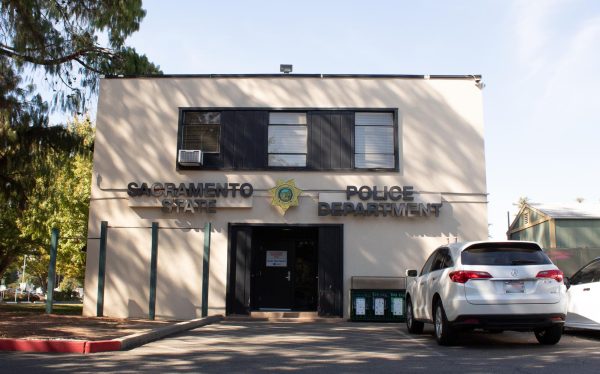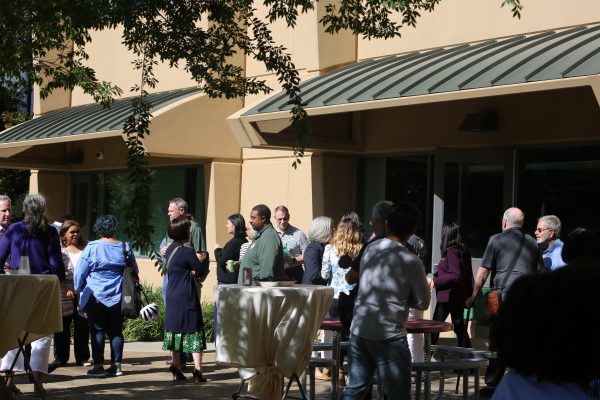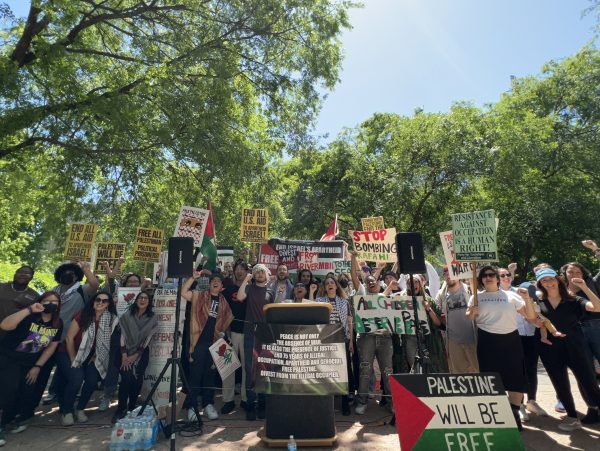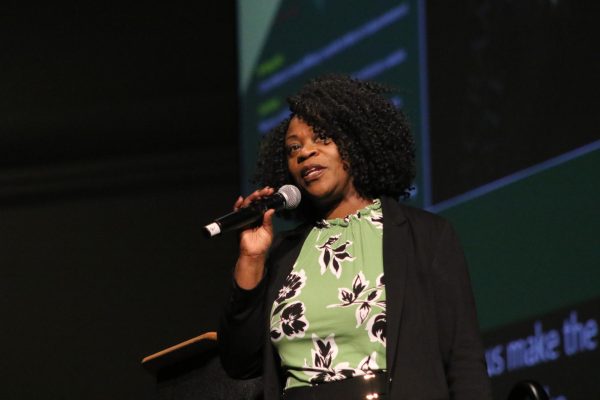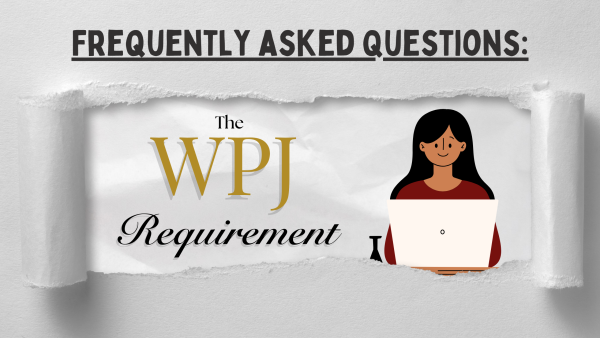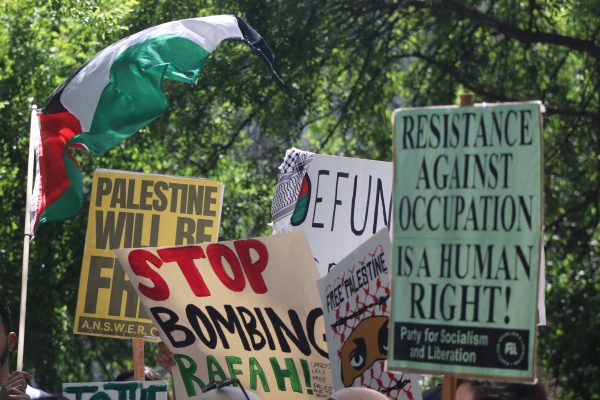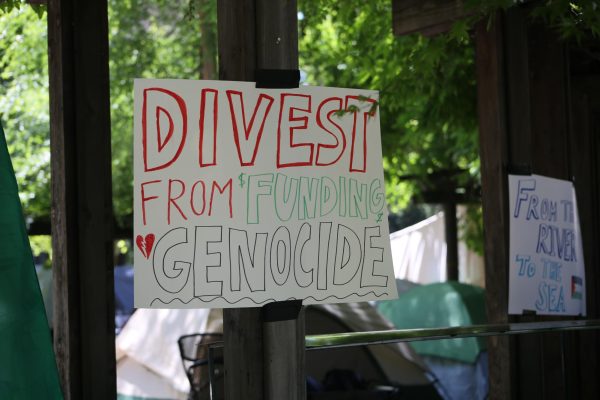Gulf War II: The Sequel
March 26, 2003
Twelve years ago, the United States government — with a little help from the American media — convinced a nation that it was a good idea to send troops to a foreign land to protect oil interests.
People wore yellow ribbons in honor of American troops. Military officials patted themselves on the back before cameras, talking about how their “smart” weapons would cut down civilian casualties. Families gathered around the television to watch bombs, missiles and other high-tech gadgets destroy the bad guys with efficiency.
Americans, myself included, ate up the first Gulf War like cheeseburgers and apple pie. I was 15 years old when the bombing started in January 1991 over “military targets” that included the heavily populated city of Baghdad. I remember feeling annoyed because the footage on CNN was fuzzy and dark — I had expected clear shots of explosions and fighting, like something out of a movie.
People were dying, and I wanted to see things blow up. The fact I was watching a real, live war just didn’t register.
I understand that now — though I wish I didn’t. Since the United States began its “Shock and Awe” bombing campaign over Baghdad and other areas in Iraq last week, I can’t help imagining terrified families huddled together in basements and shelters.
I see the fear in the faces of the five U.S. soldiers taken prisoner by Iraqi forces Sunday and wonder what is going through the minds of the thousands of others as they advance toward Baghdad.
I hear the words “We’re making good progress” uttered from President Bush’s lips as I read reports that 77 civilians were killed and 366 were wounded during a U.S. attack on Basra, a city in southeast Iraq.
It’s like a bad sequel to the original: Bigger explosions, more high-tech weapons and more intense television coverage. We can watch images of Baghdad burning on CNN, Fox News Channel or any of the major networks. War updates flash across the bottom of the screen during regular programming like NBA scores.
Those updates have yet to say anything about finding weapons of mass destruction, which is why the U.S. is attacking in the first place. At least we can feel safe knowing Iraqi oil fields have been secured.
The U.S. government has gone out of its way to make this war possible. It accused the Iraqi government of funding al Qaeda terrorists, though no proof was ever offered. It insisted that Hussein was hiding weapons of mass destruction, all the while ignoring North Korea, which openly admits re-starting its nuclear weapons program. It lambasted Hussein for using chemical weapons on Iran in the ’80s — even though the U.S. was arming Iraq at the time.
None of that matters anymore. Hundreds of thousands of American protesters — not to mention the rest of the world — have been ignored. Bush has his war. All we can do now is wait and see what happens.
I’m not a religious person, so I won’t offer any prayers for a safe, quick end to the fighting. I’m not deluded, so I won’t pretend these words will make a difference either way.
All I can offer is hope. Hope that more innocent people aren’t killed by our cutting-edge technology. Hope that all the men and women involved in the fighting — American, Iraqi or otherwise — escape with their lives, and can go home to their families, where they belong. Hope that Saddam Hussein isn’t replaced with another ruthless dictator — albeit one with Western interests at heart.
Hope that all the 15-year-olds with their eyes glued to CNN this week will take a moment to think about what’s on the other end of those bombs.
Click here to send private feedback about this article to the State Hornet’s Forum staff.


























































































































